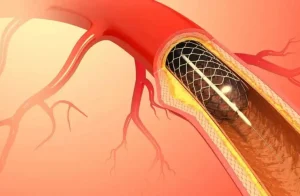You might find yourself in a situation where a recent blood test reveals higher-than-normal cholesterol levels, and at the same time, you’ve been feeling unusually drained. It’s natural to wonder—could there be a connection between your rising cholesterol and your lingering fatigue?
After all, cholesterol plays an essential role in the body. It helps build cells, produce hormones, and even support digestion. But when levels rise too high, it can lead to health concerns that might leave you feeling off. So, can high cholesterol actually cause fatigue, or is it just a coincidence? Let’s explore this connection and uncover what might really be going on.
How Fatigue Is Linked with High Cholesterol?
While cholesterol itself doesn’t directly cause fatigue, its impact on your body can create a domino effect leading to exhaustion.
High cholesterol can contribute to the narrowing of arteries (atherosclerosis), which restricts blood flow. This reduced circulation means less oxygen and nutrients reach your muscles and organs, potentially leaving you feeling tired and sluggish.
Additionally, conditions associated with high cholesterol, like heart disease or poor metabolic health, might further exacerbate fatigue.
Why Fatigue Feels Worse with High Cholesterol?
As we have already discussed, when cholesterol levels climb, plaque begins to accumulate along artery walls, narrowing the pathways your blood relies on to deliver oxygen and nutrients. High cholesterol fuels low-grade inflammation throughout the body—a silent saboteur that chips away at your energy stores over time. Inflammation not only taxes your immune system but also disrupts cellular processes, leaving your body constantly working in overdrive without any real payoff.
Add to this the increased workload on your heart, which has to pump harder to push blood through narrowed vessels, and you’ve got a recipe for deep, unrelenting fatigue. What makes it worse is the cycle it creates. Fatigue makes you less inclined to stay active, which further worsens circulation and can lead to weight gain—a compounding factor in both high cholesterol and energy levels. It’s a vicious loop that’s as exhausting as it is discouraging.
So why does fatigue feel worse with high cholesterol? Because it’s not just about tiredness; it’s about your body struggling to keep up under the weight of compromised circulation, chronic inflammation, and the cascading effects of an overburdened system.
How to Recognize If Your Fatigue is Linked to High Cholesterol

1. Persistent Fatigue Despite Rest
One hallmark sign is exhaustion that doesn’t go away, even after a good night’s sleep or time to relax. This isn’t the kind of tiredness that follows a long day or intense activity—it’s a deeper, more pervasive fatigue that lingers, making everyday tasks feel disproportionately draining.
2. Physical Weakness or Muscle Fatigue
When high cholesterol leads to reduced blood flow, your muscles might not get enough oxygen and nutrients to perform effectively. This can leave you feeling physically weak or experiencing muscle fatigue after minimal exertion.
3. Shortness of Breath or Reduced Stamina
If cholesterol buildup is narrowing your arteries, it can make your heart work harder to pump blood. This added strain may leave you short of breath or noticing a drop in your endurance during activities that were once easy.
4. Fatigue Coupled with Other Symptoms
Fatigue rarely stands alone when high cholesterol is the culprit. You might also experience:
- Chest discomfort or tightness during exertion.
- Pain or cramping in your legs when walking, a potential sign of poor circulation.
- Weight gain, especially around the midsection, which is often linked to high cholesterol and metabolic issues.
5. Brain Fog and Concentration Issues
High cholesterol’s impact isn’t limited to the body—it can also affect your mind. Poor circulation and inflammation can lead to “brain fog,” making it harder to concentrate or think clearly, compounding the frustration of fatigue.
6. Fatigue That Worsens with Poor Lifestyle Choices
If your tiredness spikes after indulging in heavy, fatty meals or skipping physical activity, it might be a clue. A diet high in unhealthy fats and a sedentary lifestyle can exacerbate cholesterol levels and their effects on your energy.
Prevent heart problems before they start – Schedule a preventive checkup
Contact UsHow to Combat Fatigue When Dealing with High Cholesterol
By targeting both your cholesterol and the root causes of fatigue, you can recharge your body, regain your vitality, and feel ready to take on the day again. Let’s explore the smartest ways to break free from this cycle and start thriving.
1. Revitalize Your Diet
The foods you eat play a major role in both your cholesterol levels and energy levels. Opt for a heart-healthy diet that fuels your body without bogging it down.
- Focus on Fiber: Foods like oats, beans, lentils, and fruits such as apples and berries can help lower LDL (“bad” cholesterol) and keep you feeling full and energized.
- Embrace Healthy Fats: Incorporate sources of omega-3 fatty acids, such as salmon, walnuts, and flaxseeds, which can reduce inflammation and boost energy.
- Cut Back on Processed Foods: Minimize trans fats and added sugars, as they can worsen both cholesterol levels and energy crashes.
2. Stay Active to Boost Energy and Circulation
Regular exercise is a double win—it helps lower cholesterol and improves blood flow, delivering more oxygen and nutrients to your muscles and organs.
- Start Small, Stay Consistent: Walking, swimming, or yoga are great low-impact activities to get your body moving without overwhelming you.
- Incorporate Strength Training: Building muscle not only boosts your metabolism but also enhances overall endurance and energy.
- Prioritize Daily Movement: Even short bursts of activity, like stretching or a quick walk, can help fight off fatigue and improve circulation.
3. Manage Stress to Prevent Energy Drain
Chronic stress can worsen fatigue and indirectly affect cholesterol levels by triggering unhealthy coping habits like overeating or skipping exercise.
- Practice Mindfulness or Meditation: Techniques like deep breathing or guided meditation can help reduce stress and re-energize your mind.
- Engage in Relaxing Activities: Whether it’s reading, gardening, or listening to music, find activities that calm your mind and recharge your energy.
4. Prioritize Quality Sleep
Poor sleep can amplify fatigue and disrupt your body’s ability to regulate cholesterol.
- Stick to a Sleep Schedule: Go to bed and wake up at the same time every day to improve sleep quality.
- Create a Sleep-Friendly Environment: Keep your bedroom dark, quiet, and cool to encourage restful sleep.
- Limit Stimulants: Avoid caffeine and heavy meals close to bedtime, as they can interfere with your ability to fall asleep.
5. Stay Hydrated
Dehydration can leave you feeling sluggish and fatigued.
- Drink Plenty of Water: Aim for at least 8 glasses of water a day to stay hydrated.
- Incorporate Hydrating Foods: Fruits and vegetables like cucumbers, watermelon, and oranges can add both hydration and nutrients to your diet.
When to Take Action
Fatigue can be easy to brush off as part of a busy lifestyle, but persistent exhaustion is your body’s way of signaling that something might be wrong. If you’ve been dealing with unexplained fatigue alongside high cholesterol or other symptoms, it’s time to take action. Acting early not only helps address your energy levels but can also prevent more serious health complications down the road.
Signs You Shouldn’t Ignore
- Fatigue That Won’t Go Away: If rest and sleep don’t seem to help, and you feel drained day after day, it’s worth investigating further.
- Accompanying Symptoms: If your fatigue is paired with shortness of breath, chest discomfort, or leg pain during activity, it could signal circulation problems linked to high cholesterol.
- Difficulty Functioning: When fatigue starts interfering with your ability to work, exercise, or enjoy daily life, it’s more than just being tired—it’s a sign that something needs attention.
Prevent heart problems before they start – Schedule a preventive checkup
Contact UsWhy Acting Early Matters
Fatigue caused by high cholesterol could point to underlying issues like heart disease, poor circulation, or metabolic syndrome. Catching these problems early gives you a better chance of reversing them with lifestyle changes, treatments, or medications. Ignoring the signs, however, can allow these conditions to worsen, leading to more severe outcomes.
What You Should Do Next
- Talk to Your Doctor: Share your symptoms, including how long you’ve been experiencing fatigue and any other changes in your health.
- Get a Full Health Assessment: A comprehensive checkup, including blood tests, can uncover how your cholesterol levels, heart function, or other factors might be contributing to your fatigue.
- Start Small but Act Decisively: Once you have clarity, take actionable steps to improve your energy and cholesterol—whether that’s adjusting your diet, exercising, or following your doctor’s recommendations.
Remember, fatigue isn’t something you have to live with. Taking action now can set you on the path to feeling more energized and healthier for the long term.







